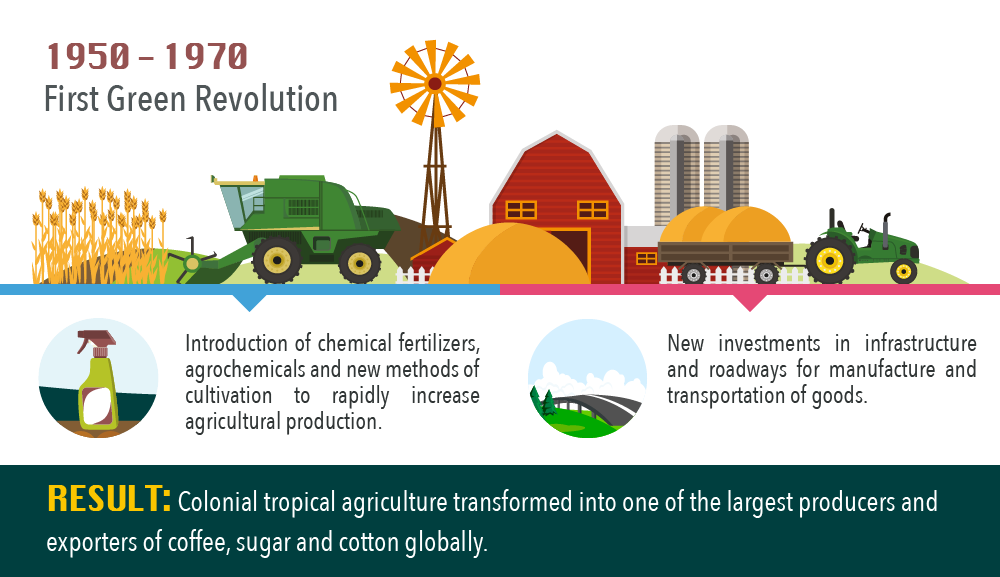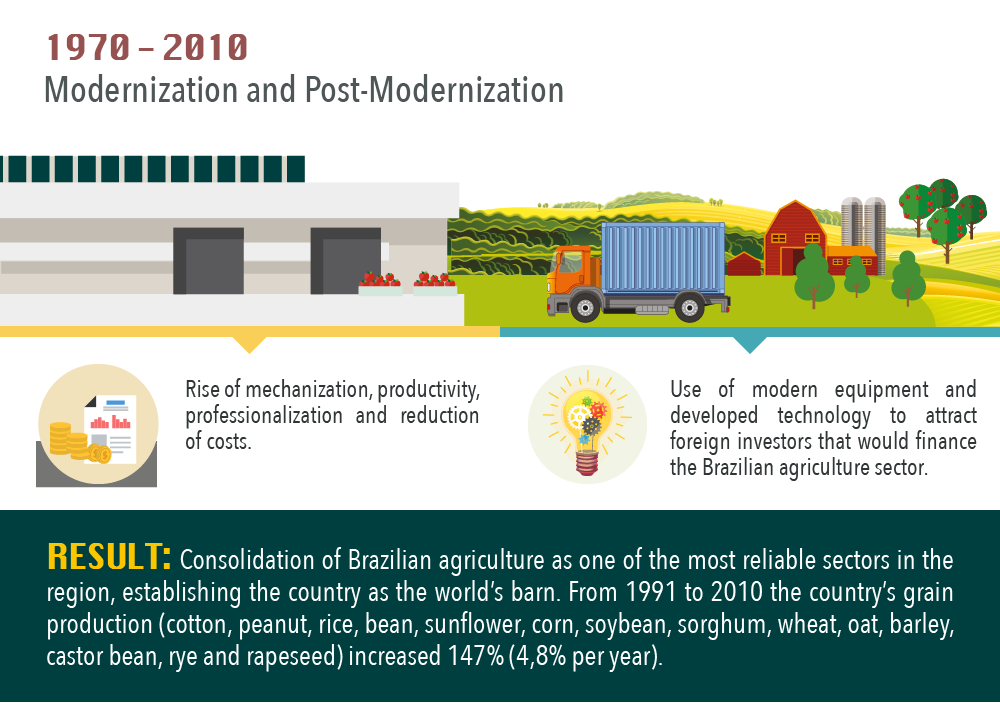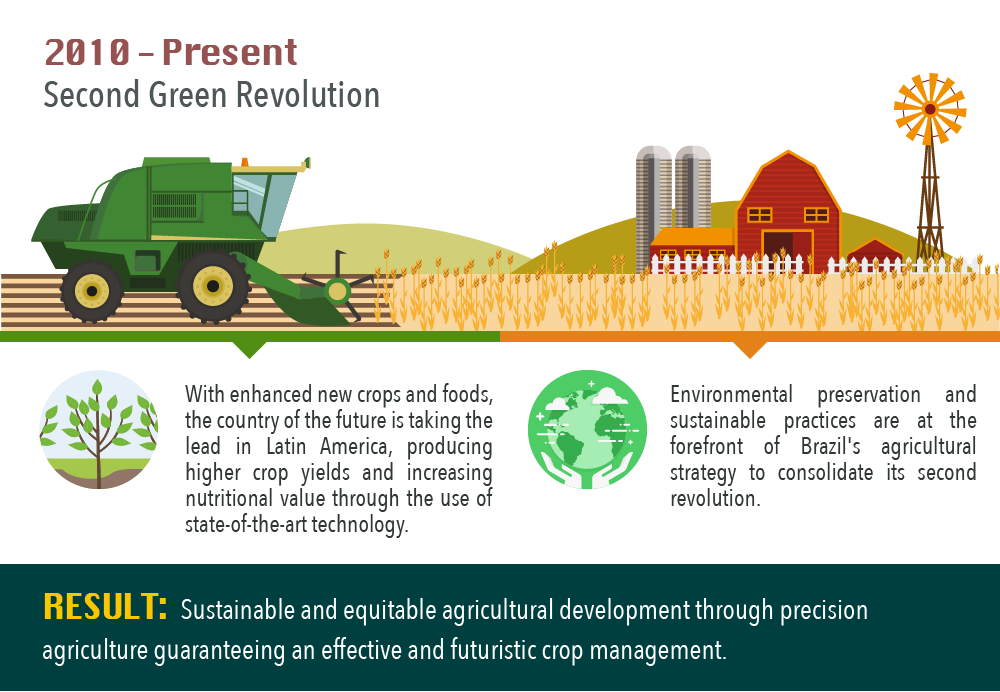Since the midpoint of the last century, Brazil’s progressive developments in agriculture have developed the country into the world’s 21st-century breadbasket. Transforming its tropical agriculture into a modern and resourceful one has allowed the country to become the world’s largest exporter of a variety of products like sugar, coffee, and tropical fruits.
For years, Brazilian agriculture has focused on transforming from a traditional production system with limited use of technologies, into one of the world’s most modern agricultural sectors – especially since the 1970s, an era which marked an important process of modernization, including advances in technological progress and gains in productivity.

Despite the political and social unrest Brazil has been experiencing in recent years, the agricultural sector has stood out as the star of the economy. The sector, which grew 10.74% last year and contributed more than $10 billion to the economy, has continually experienced strong growth. With an abundance of natural resources available, farmers and agricultural leaders are working to optimize the potential of their productivity through a combination of science and sustainable agricultural technologies, including precision agriculture, crop sensors and irrigation systems, leading the country into its Second Green Revolution.
With 13.5% of the world’s arable land and 15.2% of the world’s freshwater reserves, Brazil has the necessary resources to maximize its productivity potential with technology as an ally – a fact that Brazilian policymakers are aware of. Since the Lula da Silva administration, the Ministry of Agriculture, Livestock, and Supply (MAPA) and the Ministry of Agrarian Development (MDA) have been working to develop and implement new policies such as the MAPA’s Multi-Annual Plan and the Family Farming Harvest Plan. The latter has obtained a total funding of USD $62.13 billion for the years 2016/2017 – up 8% compared to the USD $61.02 billion obtained in 2015/2016. This funding will be used for the development of agribusiness, technology, and environmental care to promote food security and guarantee Brazil’s position as one of the key players in international sales of agricultural commodities.

Ensuring food security over the coming decades will help the world overcome future challenges caused by a growing population, greater urbanization and depleting natural resources. To do so, Brazil is showing a new dynamic that promotes sustainable expansion of agricultural production through higher productivity, greater cropping intensity and use of technology.
Brazil’s Second Green Revolution is the result of the improved use of available resources, as we – at a global level – will need to produce more while using less. The world will need to increase its food production by 50-100% by 2050 to guarantee food security and Brazil is now an agribusiness powerhouse that has the resources and capabilities to help achieve these goals and solve a growing Primal challenge. According to David Roquetti, the Executive Director of Brazil’s National Fertilizer Association, Brazil is making its way towards increasingly innovative ways of maintaining high output without compromising its natural resources.

The Second Green Revolution in Brazil is allowing the nation to become an unprecedented green agribusiness powerhouse of paramount importance to the global economy. Primal is part of this ongoing Second Green Revolution and is reinforcing it through an agricultural project based on technology, efficiency, and sustainability.
The implementation of state-of-the-art technology across our projects, including solar panel installations, UAV technology, and irrigation systems has allowed us to improve the use and distribution of our inputs and resources. Alongside these efforts, our Sustainable Future Initiative has been empowering the local community by teaching sustainable cultivation practices that are safe, productive and applicable to everyone, and by implementing our own reduce-reuse-recycle culture that guarantees the preservation of the local environment and avoids land degradation.